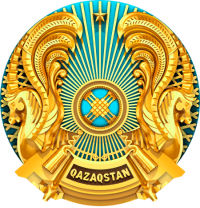Антикоррупционный стандарт РГКП «Центр олимпийской подготовки по велосипедному спорту»
1. Name of spheres of social relations: physical culture and sport.
2. Developed by the anti-corruption standard: the state enterprise "Centre of Olympic preparation on Bicycle sports" (hereinafter-the company).
3. Rules of conduct (actions) of employees working in the enterprise.
3.1 when exercising the rights and legitimate interests of individuals and legal entities in the sphere covered by the anti-corruption standard:
Employees in their activities are obliged to:
1) to ensure observance and protection of the rights, freedoms and legitimate interests of natural and legal persons, to consider in the order and terms established by the legislation, appeals of physical persons and legal entities within competence, to take necessary measures on them;
2) not to allow reclamation of documents not provided by normative legal acts, as well as to avoid red tape (bureaucracy) during performance of functional duties;
3) ensure transparency in decision-making affecting the rights and legitimate interests of individuals and legal entities;
4) do not use official position to influence individuals and legal entities in solving personal issues;
5) to improve their professional level and qualification for the effective performance of official duties, to comply with the restrictions and prohibitions established by the laws of the Republic of Kazakhstan;
6) not use official and other information which is not subject to distribution for the purpose of obtaining or extracting property and non-property benefits and advantages;
7) not to disseminate information that does not correspond to reality.
3.2. In the preparation and adoption of management and other decisions within its competence:
1) to carry out functions in accordance with his / her official powers;
2) to prevent conflicts of interest, if any, to take measures to eliminate them in accordance with the law;
3) when making decisions that are within the competence of the employee of the company not to accept from third parties (service recipients) any material benefits, services and other privileges related to the performance of their legal duties from third parties (service recipients);
4) in the exercise of its powers to be guided by the principle of legality, the requirements of the Constitution, laws and other legislative and regulatory legal acts of the Republic of Kazakhstan.
3.3. Managers in relations with subordinates are recommended:
his behavior to serve as an example of impartiality, fairness, unselfishness, honesty and integrity;
- to ensure compliance with the principles of meritocracy, in dealing with personnel issues, not to give preference on the grounds of kinship, community and personal devotion;
- to be fair and objective in assessing the results of their activities, as well as the application of incentives and penalties;
- not to use official position for influencing their activity at the solution of questions of non-legal character;
- not to force to Commission of illegal acts, and also the acts which are not compatible with the generally accepted morally-ethical norms.
3.4. Subordinates in relations with managers is recommended:
- at accomplishment of instructions to represent only objective and reliable data, immediately to inform the management on the cases of corruption which became known to them in actions of other workers, contractors or other persons;
- to prevent in relation to the management of the manifestations of personal loyalty, the desire to receive benefits through their job opportunities.
3.5. In other relationships, arising depending on the specifics of the sphere of life:
1) comply with generally accepted moral and ethical standards;
2) to promote the highest legal and anti-corruption culture;
3) observe labor discipline and service ethics;
4) to resist actions detrimental to the interests of the state, impeding or reducing the efficiency of the enterprise;
5) prevent the Commission of offenses and other offenses for which the law provides disciplinary, administrative responsibility;
6) prevent close relatives, spouses and property owners from joint service (work);
7) not use official and other information which is not subject to official distribution for the purpose of obtaining or extracting property and non-property benefits and advantages;
8) to oppose actions detrimental to the interests of the state in the sphere of physical culture and sports.

